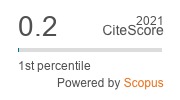Design and Analysis of Modified Battery Charger for Electric Vehicle with Improved Power Factor
Abstract
Nowadays, for the sustainable development of the modern transportation sector, battery powered electric vehicles (BEVs) are dominating over the conventional gasoline powered vehicles. The transportation electrification is the most feasible way to establish a clean energy based vehicle market since the power source used to charge these batteries, is obtained from the electricity. For recharging of batteries of these vehicles, number of charging stations will also increase in future. These electric vehicle charging stations have great impact on power grid parameters like current, voltage and power factor. The non coordinated charging conditions, resulting in increased power load and increased voltage deviation due to this the grid network losses will also increase. Thus these all power quality disturbances should be minimized in order to obtain energy security and good efficiency of power sector. These all power grid parameters disturbance problems can be analyzed with the help of simulation model on MATLAB. To facilitate the battery charging, an AC-DC converter based on board or off board charger is the significant supporting equipment of the electric vehicle (EV). Battery charging for EV, is performed in constant current (CC) and constant voltage (CV) regimes using a flyback converter and DC-DC converter. This paper presents design and analysis of modified battery charger for electric vehicle with improved power factor.




